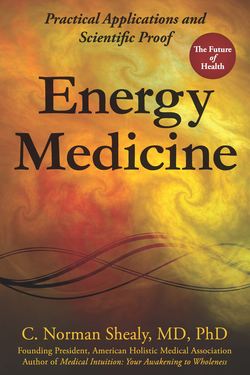Читать книгу Energy Medicine - C. Norman Shealy - Страница 39
На сайте Литреса книга снята с продажи.
Paracelsus
ОглавлениеParacelsus (1493–1541) was a physician, botanist, alchemist, astrologist, and, above all, an occultist who worked with energy in many ways. Born Phillippus Aureolus Theophrastus Bombastus von Hohenheim in Einsiedeln, Switzerland, some consider him to have been the first systematic botanist. His father was a physician and chemist and, although trained in medicine, Paracelsus had an equal interest in astrology. He created laudanum, an opium tincture which continued to be commonly used until the nineteenth century. He held a chair of medicine at the University of Basel for less than a year, because his colleagues became angered and essentially kicked him out. How typical! Three of my favorite quotes capture perfectly the intolerance of academia toward innovative ideas:
“All change is heresy.”—Linus Pauling
“Change is directly proportional to controversy.”—Carl Moyers
There is a special place in hell for those who, in the face of a moral dilemma, maintain neutrality.”—from Milton’s Paradise Lost
In general, “science,” politics, education, and religion reject and often violently attack new ideas. Today, almost every aspect of Energy Medicine is rejected by the “Establishment.” It often takes one or more generation for new concepts to become accepted.
Paracelsus believed in the Greek concept of the four elements (Earth, Air, Fire, and Water), but his overlying philosophy was that a balance of the body with nature was critical to health. He also believed that humans needed balances of minerals and that certain illnesses had chemical remedies that could cure them. In many respects, Paracelsus was one of the most controversial physicians of all time, but he is said to have been the Father of Toxicology. He is quoted as having said, “All things are poison and nothing is without poison, only the dose permits something not to be poisonous.” Interestingly, in that quote alone, I think we see a precognitive concept of the development of homeopathy, which will be discussed later in this chapter and again in Chapter 7.
Paracelsus is worth remembering primarily because he was truly unique, multitalented, and above all, interested in looking at every conceivable interaction between body, mind, and soul and the cosmos itself. Incidentally, Paracelsus is credited with providing the first clinical scientific mention of the concept of the unconscious and the idea that “The cause of disease . . . is a mere opinion, an idea assumed by imagination.”
